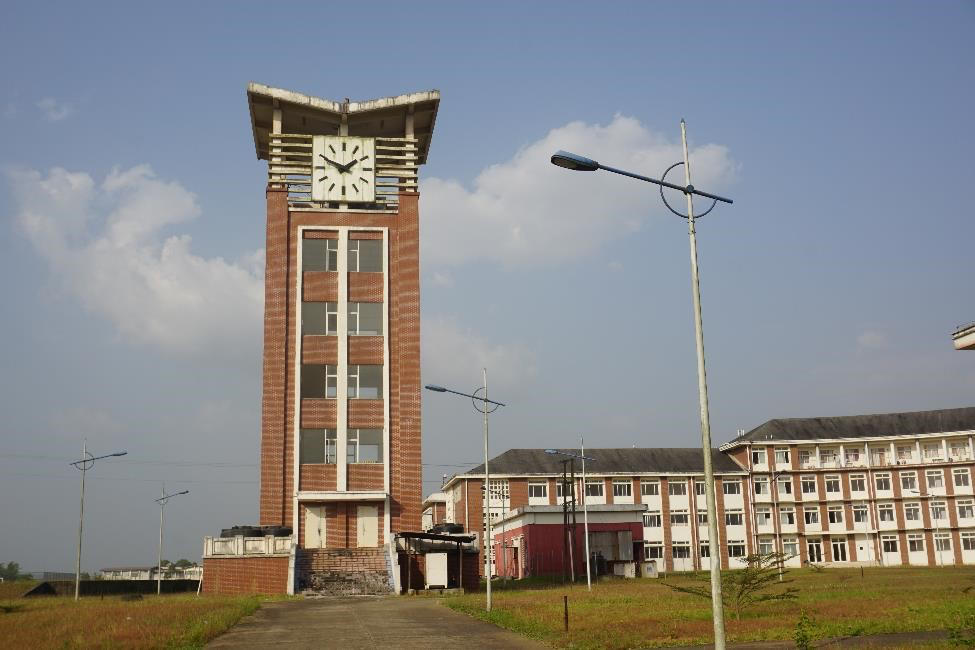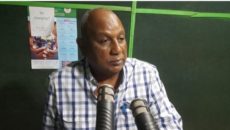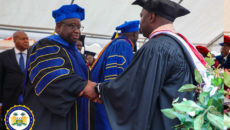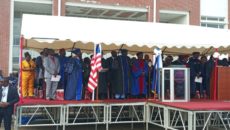MONROVIA, Montserrado – After months of search following the retirement of Emmett Dennis, the Board of Trustees of the University of Liberia has endorsed Ophelia Weeks as the university’s new president.
Weeks will become the 14th president of the university.
Dennis, who retired in December 2016 according to a statement from the university, will remain there to teach at the A.M. Dogliotti College of Medicine and the Thomas J.R. Faulkner College of Science and Technology.
Since the university was founded in 1951, Weeks is its second female president, after Antoinette Brown Sherman, who served in 1978.
The neuroscientist is expected to be formally installed in the position this month, although she is already performing her new responsibilities. She is currently UL’s vice president for academic affairs, a position she has held since 2012, after previously serving as dean of the Faulkner College of Science and Technology.
Before joining the university, the new president spent at least 30 years of service at Florida International University as a biology professor. Her father, Rocheforte Lafayette Weeks, also served as president of the University of Liberia between 1959 and 1973.
Before her retirement from Florida International University, Weeks shaped her relationship with the University of Liberia in 2006 when she provided neuroanatomy lectures as a guest lecturer to first year medical students at A.M. Dogliotti College of Medicine.
She returned the following year as a visiting professor to teach neuroanatomy at the college and spent six months at the university during her sabbatical leave in 2011. During her stay, she served as a technical advisor to the dean of the medical college and taught HIV-related courses to second year non-science majors.
She returned to the university through an agreement with Florida International University to assist with the institution’s rebuilding efforts. It was when she became recruited to serve as dean of College of Science and Technology.
Although not new to the university’s system and environment, Weeks’ administration faces several challenges.
They will include the systemic corruption in the Electronic Data Process Department and the Business and Finance Office, where duplicated receipts are reportedly issued to students to bypass the registration process. Additionally, the frequent protests by students against the administration’s decisions, in addition to poor services and infrastructure, will be hurdles for the new president.
Students have, from time to time, demonstrated against a recent increment in the cost of education to US$4 per credit hour. Demonstrators have said the increment does not come with improved facilities, such as internet access and modern textbooks.
There are also concerns that since the 1980s, the academic and science buildings on the Fendell campus have not been painted, or properly renovated.
Administratively, there remain some problems. For example, the process for registering students is often chaotic, as only two branches of Ecobank are usually opened for the over 25,000 students to pay their fees and tuition during a short time period. This often leads to chaos among students, demonstrations, corruption, and in most cases, extensions in the deadlines.
Upon taking over in 2009, Weeks’ predecessor, Dennis, introduced several systems to reduce tension at the university and tackle some of the existing challenges.
He introduced vacation school and two annual graduations to reduce the number of students at the overpopulated university, especially for those who had stayed too long.
He also introduced a staff development plan which enabled many staff members to travel abroad to obtain advanced degrees. This has brought an end to first degree holders teaching students pursuing their bachelors.
Dennis also brought an improvement in staff salaries and a reduction in violent street protests by students.
Additionally, while laboratories are still lacking, some at the Fendell campus have received new equipment.
A system to monitor and track instructors who were in the habit of extorting money from students for grades was also introduced.
This has worked well, especially in the Teacher’s College and the Department of Mass Communication, where there has been no report of bribes in recent years.
Bribing entrance examiners to pass is no longer a financial burden for incoming students, as this practice has been discontinued. The Dennis administration also evicted illegal squatters from the Fendell property and put an end to illicit sex and drug abuse that were taking place on that campus.
However, the Weeks’ administration is yet to disclose how it intends to tackle current challenges at the university.
Already, the Student Unification Party, a student political movement at the university has criticized the endorsement of the new president.
SUP said in a release that it lacks confidence that Week’s administration would lead to any positive development at the university.
Featured photo by Jefferson Krua



